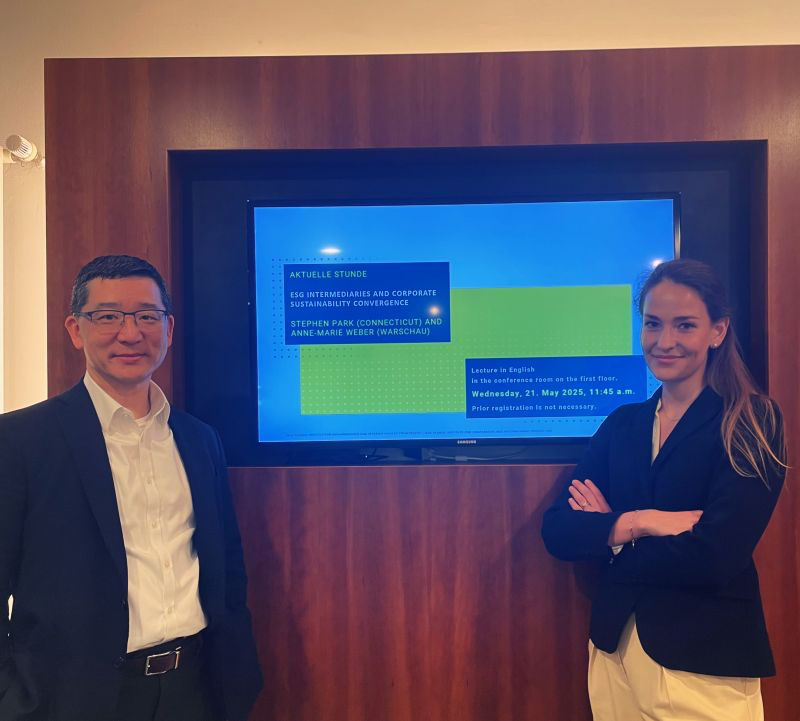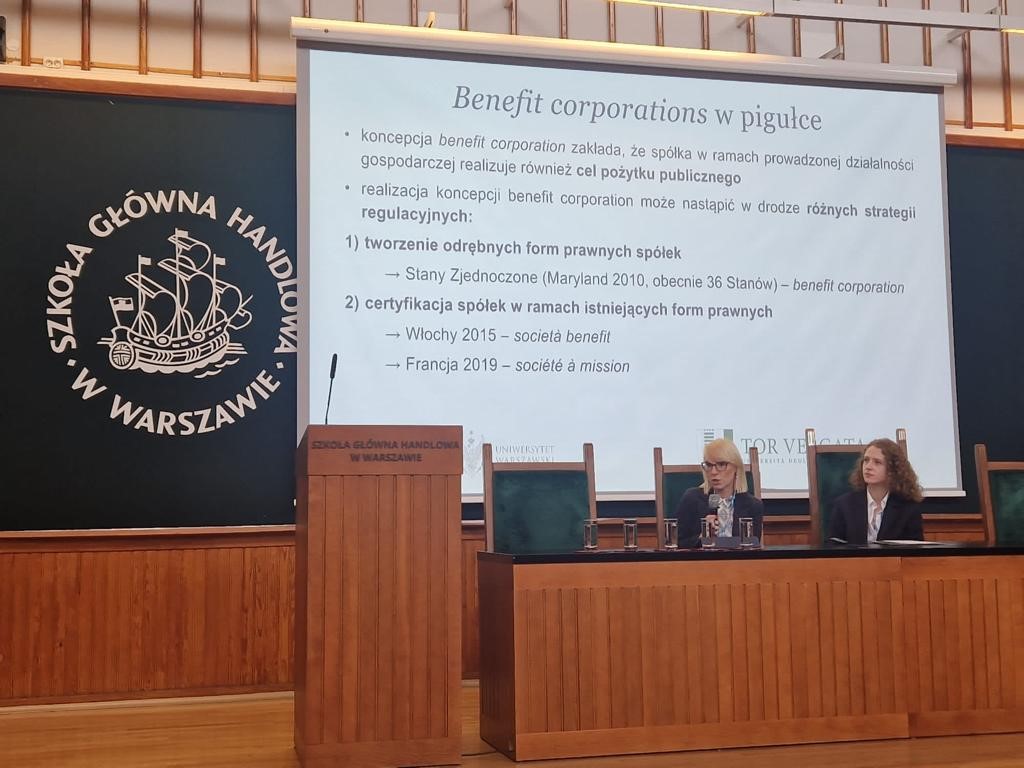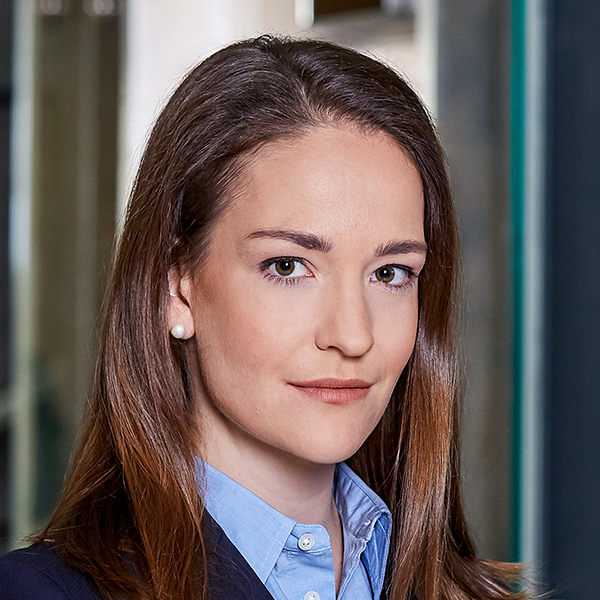The role of sustainable corporate governance for EU climate policy
In light of the newest evidence from the natural sciences, human-induced climate change is increasingly being understood as the defining global challenge of our age. This has unleashed a profound societal and cultural transformation process – a sustainability revolution – which calls into question many basic organizing principles of economic activity.
In particular, notions on the role of companies within society are progressively being challenged. Climate policy ranks high on today’s global political agendas. International commitments like the Paris Climate Agreement or the UN 2030 Agenda for Sustainable Development shape the global course of sustainability policy. In the EU, alongside treaty-based obligations, the European Green Deal, with its climate neutrality commitment, sets the blueprint.
Companies are naturally at the centre of lawmakers’ attention. Their essential part in mitigating climate change by reducing their net emissions and by driving the innovation and adaptation that are necessary to bring about a net-zero economy is widely recognized. In the search for adequate policy mechanisms, the question of the role of corporate governance in the aspired transition toward sustainable capitalism is highly pertinent.
Whereas public law instruments, for example, direct regulatory controls on emissions or market solutions, have a long-standing tradition of serving as policy instruments for protecting the environment, most recent developments are increasingly emphasizing the role of private law, particularly company law, in implementing sustainability-driven policy goals. Fundamentally, a stronger responsibilization of companies for meeting sustainability objectives is being pursued. Consequently, the question arises whether company law institutions could reshape corporate governance frameworks to align companies’ conduct with climate policy objectives. ‘Corporate sustainability’ is the flag under which the emerging debate sails.
The Funding Institution:
National Science Centre (NCN) - project ID 2022/45/B/HS5/00659
Contacts:
Dr. Anne-Marie Weber - Assistant Professor at the Chair of Commercial Law of the University of Warsaw
Project description
Research Object and Research Gap
The project addresses the challenge of a sustainable reorientation of economic activity. It examines the question of how climate policy objectives could be fostered through the design of legal institutions of private law (company law) that shape corporate governance.
Work plan
The project’s general hypothesis claims that the regulation of corporate governance mechanisms through company law - if adequately designed - could play an essential role in catalyzing EU climate policy. Drawing on law & political economy literature and institutional economics, the project identifies a constitutive role of legal institutions in shaping companies’ conduct. Umbilical importance rests in the redefinition of the purpose of the company, as it determines the duties of a company’s residual decision-makers, i.e., its board members, and, therefore, directly affects a company’s conduct. The testing of the general hypothesis will be accomplished by verifying the following seven sub-hypotheses, which define the project’s specific research questions.
In the first step, the project will identify the legal state of play regarding corporate sustainability and explore the theoretical basis regarding the origin of authority and the sources of normativity for corporate sustainability reform on a granular level. The findings will serve as input to the design of the qualitative and quantitative research.
The subsequent task is to collect the empirical data. The team will review a representative number of publicly available company charters of listed companies in the covered jurisdictions as well as their annual non-financial reports and select companies to conduct in-depth qualitative case studies. To capture how SMEs understand their purpose in terms of sustainability, online surveys targeting pre-defined groups of respondents will be used. Empirical research will also include in-depth interviews with policymakers.
The next task will be to analyse and interpret the collected data which will enable the testing of the project’s sub-hypotheses. It is also planned to consult those findings with distinguished experts in this field.
The accomplishment of the project’s scientific goal is expected to entail a string of high-profile academic publications which will serve a broad audience of scholars, including but not limited to academics from the disciplines of law and political sciences.
Scheduled events related to the realisation of the project
The list of scheduled events will be supplemented on an ongoing basis.
Project publications
Corporate Due Diligence and Corporate Accountability - remedying environmental damage in a transboundary context [in:] S. Dudzik, A. Sikora, B. Iwańska (eds ), Cross-border pollution and environmental disputes in EU Law. Global challenges and local remedies, Routledge 2025 (forthcoming) (K. Oplustil, A-M. Weber)
O interesie spółki w kontekście postulatów zrównoważonego rozwoju – polemika [On the company’s interest in the context of sustainable development demands – a polemic], Przegląd Prawa Handlowego [Business Law Review], 2025/7, (Anne-Marie Weber).
Należyta staranność przedsiębiorstw jako element zrównoważonego ładu korporacyjnego - dyrektywa CS3D i jej wpływ na obowiązki i odpowiedzialność przedsiębiorstw [Corporate due diligence, as part of sustainable corporate
governance - the CS3D Directive and its impact on companies' duties and responsibilities], Przegląd Prawa Handlowego [Business Law Review], 2024/11, pp. 4-18 (K.Oplustil, A-M. Weber).
Expanding the Toolbox of Sustainable Business Law: The Transnational Impacts of the EU Corporate Sustainability Due Diligence Directive (CSDDD), Pace Environmental Law Review, 2024/1, pp. 155 - 181 (Anne-Marie Weber).
Zrównoważony ład korporacyjny all’italiana [Sustainable corporate governance all’italiana], Przegląd Prawa Handlowego [Business Law Review], 2022/10, pp.30-39 (Z. Mazur, A-M. Weber).
Zrównoważony ład korporacyjny en français [Sustainable corporate governance en français], Przegląd Prawa Handlowego [Business Law Review], 2022/7, pp. 15-23 (A. Szczęsna, A-M. Weber).
Zrównoważony ład korporacyjny (sustainable corporate governance) – kierunek ewolucji polskiego prawa spółek? [Sustainable corporate governance – pathway for development of Polish company law?], Przegląd Prawa Handlowego [Business Law Review], 2022/6, pp. 20-33 (Z. Mazur, A. Szczęsna, A-M. Weber).
The list of publications will be supplemented on an ongoing basis.
Conferences
On 19th September 2025, dr Anne-Marie Weber presented a paper titled “Advancing Sustainable Corporate Governance in the EU Capital Markets Union” at the SMART Network Symposium “Sustainability is (Still) Possible! Governing Market Actors for a Safe and Just Space” hosted by Università degli Studi di Torino. Dr. Anne-Marie Weber also participated in a panel alongside Beate Sjåfjell, John Quinn, and Elena Corcione, with Harm Schepel moderating.

On 21st May 2025, dr Anne-Marie Weber and Stephen Park (University of Connecticut School of Business) presented a work-in-progress paper, “ESG Intermediaries and Corporate Sustainability Convergence” during the "Aktuelle Stunde" at the Max-Planck-Institut für ausländisches und internationales Privatrecht.

On 29th November 2024, dr Anne-Marie Weber presented a joint research paper, “Corporate Purpose in Flux: The Role for Regulatory Strategies in Sustainable Finance,” co-authored with Stephen Park (University of Connecticut School of Business), at the 6th International Conference on European Company Law and Corporate Governance, "New Era in Corporate Governance: Sustainability at Crossroads”. The event was organised by the Faculty of Economics & Business in Zagreb.

On 3rd November 2023, dr Anne-Marie Weber and Aleksandra Szczęsna presented a paper titled "FinTech & ESG – Marriage of buzzwords, or compelling policy avenue for sustainable development?" at the Yunus Social Business Centre Conference in Sustainable and Socially Responsible Finance 2023 hosted by Alma Mater Studiorum – Università di Bologna.

On 12th October 2023, Zofia Mazur and Aleksandra Szczęsna participated in the conference „ESG – Sustainable transformation of the economy, local governments and financial markets – trends, challenges and best practices”, organized at the SGH Warsaw School of Economics, and held a presentation entitled „Sustainable transformation of the economy and corporate governance - conclusions from research on the so-called benefit corporation”.

On 20th September 2023, Anne-Marie Weber presented the paper "Redefining the Corporate Purpose - The Influential Role of Academics" at the 2023 Annual Meeting of the European Corporate Governance Institute (ECGI), which was hosted at Copenhagen Business School.

Project Team

Anne-Marie Weber
Anne-Marie Weber holds the position of Assistant Professor at the Chair of Commercial Law of the University of Warsaw, where she has defended her doctoral thesis, which was then awarded by the Chairman of the Polish Financial Supervision Authority in the competition for the best doctoral thesis in the field of the financial market and published as a monograph entitled ‘Wpływ instytucji prawnych rynku kapitałowego na efektywność spółek Skarbu Państwa’ (‘The influence of capital market institutions on state-controlled companies’ efficiency’). She is a graduate of Master's studies (LL.M.) at the Berkeley School of Law. She teaches company law and financial market law and is a lecturer at the School of German Law operating at the Faculty of Law and Administration of the University of Warsaw. Dr. Anne-Marie Weber is a frequent Visiting Scholar of the Max Planck Institute for Comparative and International Private Law in Hamburg. She also was a Visiting Professor at the Berkeley School of Law and the University of Mainz. She has been awarded with several scholarships and research grants, amongst others, by the French Government (Campus France), the Max Planck Gesellschaft and the Polish National Science Center. Her habilitation thesis, which is currently in preparation, concerns the issue of implementing and enforcing climate policy goals by means of private law institutions, primarily company law.

Zofia Mazur
Zofia Mazur obtained PhD in legal studies at the University of Rome "Tor Vergata”. Zofia Mazur graduated from the University of Turin and the University of Bologna obtaining a Bachelor’s degree in Business and Public Administration Consultant (Bologna) and two Master’s degrees in Comparative civil law (Turin). She also graduated from the Institute of Legal Sciences of the Polish Academy of Sciences (Postgraduate Studies in Competition Law). She was a visiting PhD candidate at the University of Paris Panthéon-Assas. She was also a Trainee at the Italian Competition Authority in Rome and at European Banking Authority in Paris. Currently, she is a Teaching Tutor at the University of Bologna (course: Antitrust in Financial and Insurance Sector) and an external legal consultant to the Italian Ministry of Enterprises and Made in Italy.

Aleksandra Szczęsna
PhD candidate at the Chair of Commercial Law of the University of Warsaw. Aleksandra Szczęsna graduated from the University of Warsaw and obtained a Master's degree in Business Law with a specialisation in French and European Business Law from the University of Poitiers. In her professional and scientific activity, she focuses on the impact of technological development on the different branches of law.

